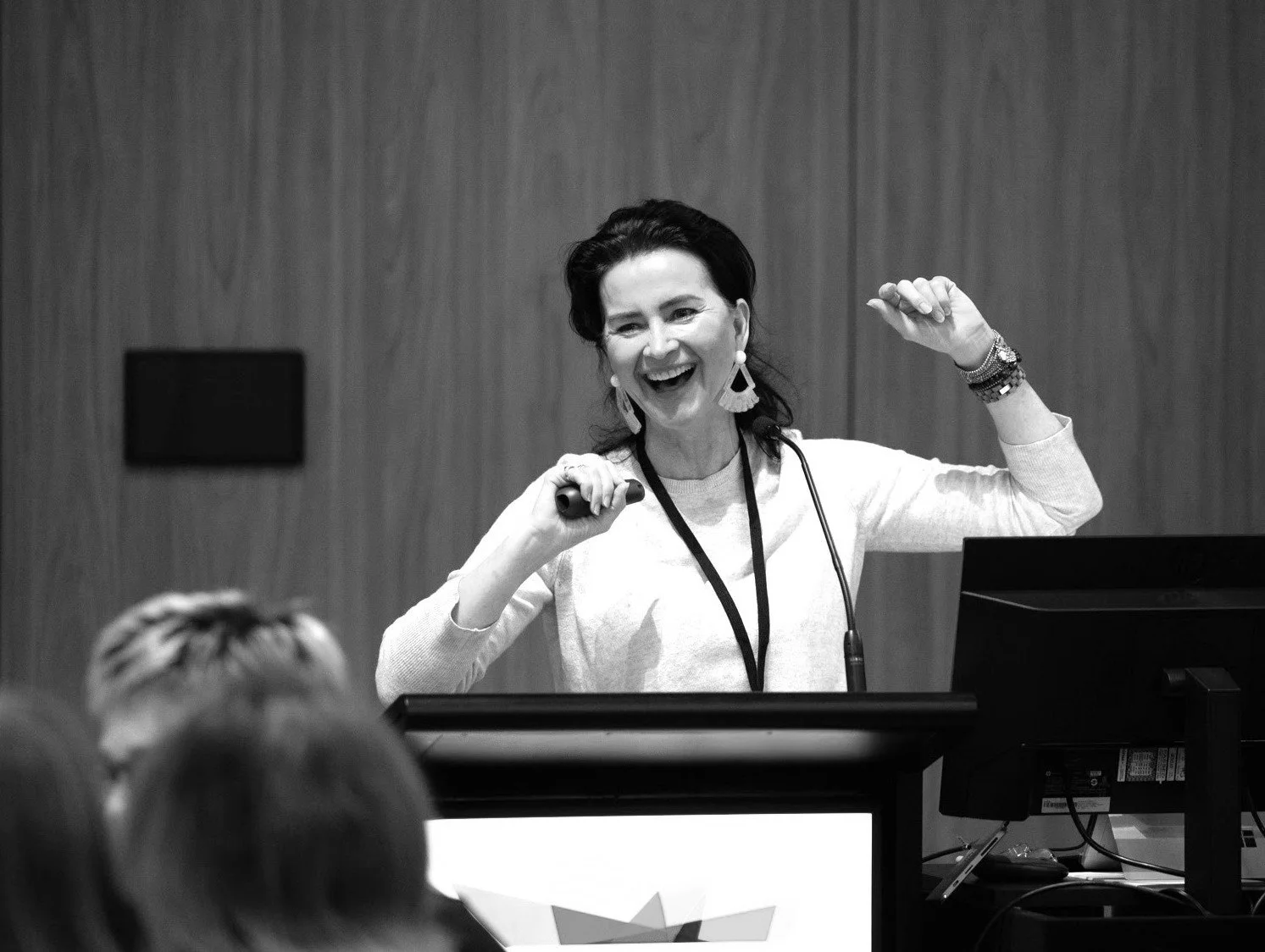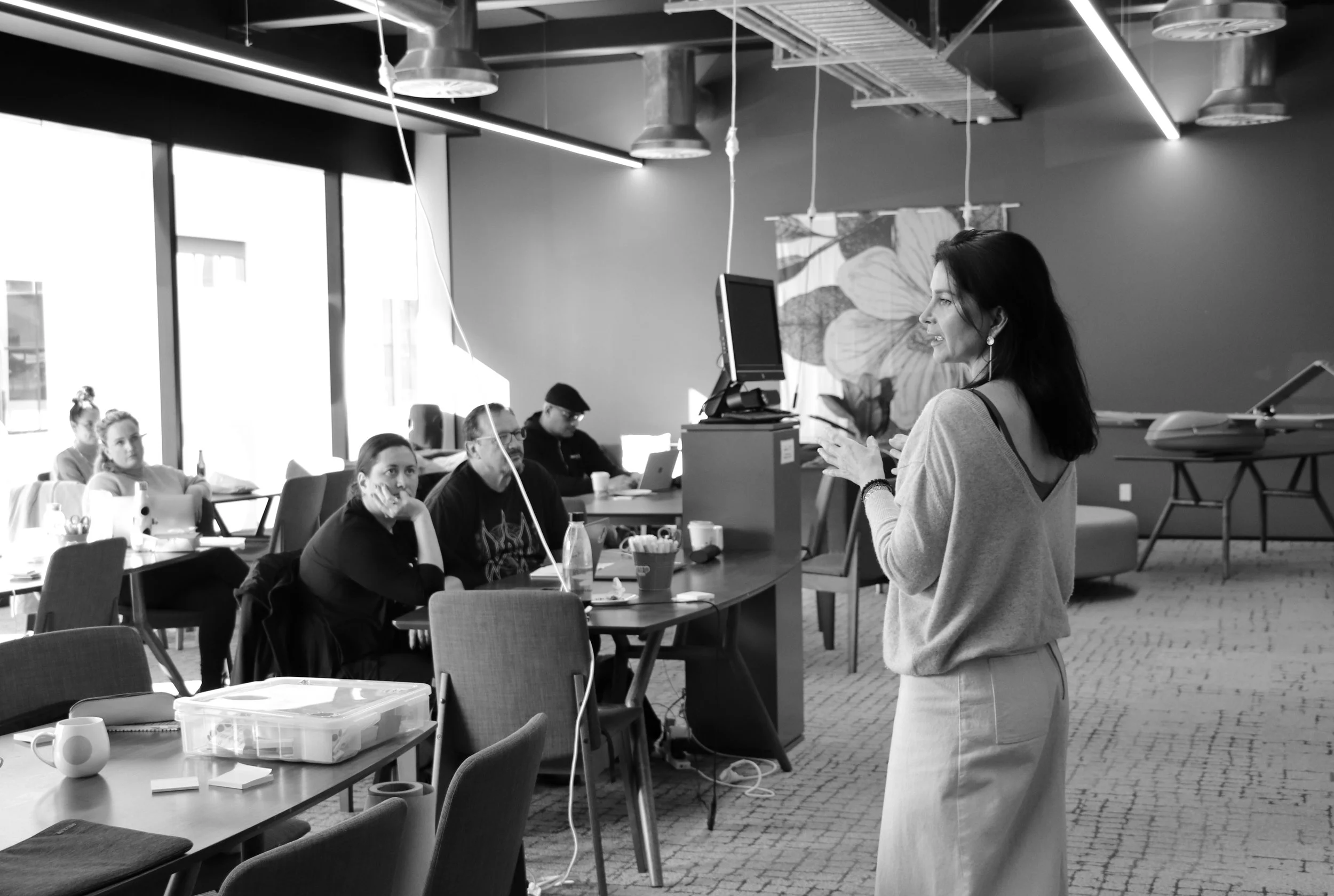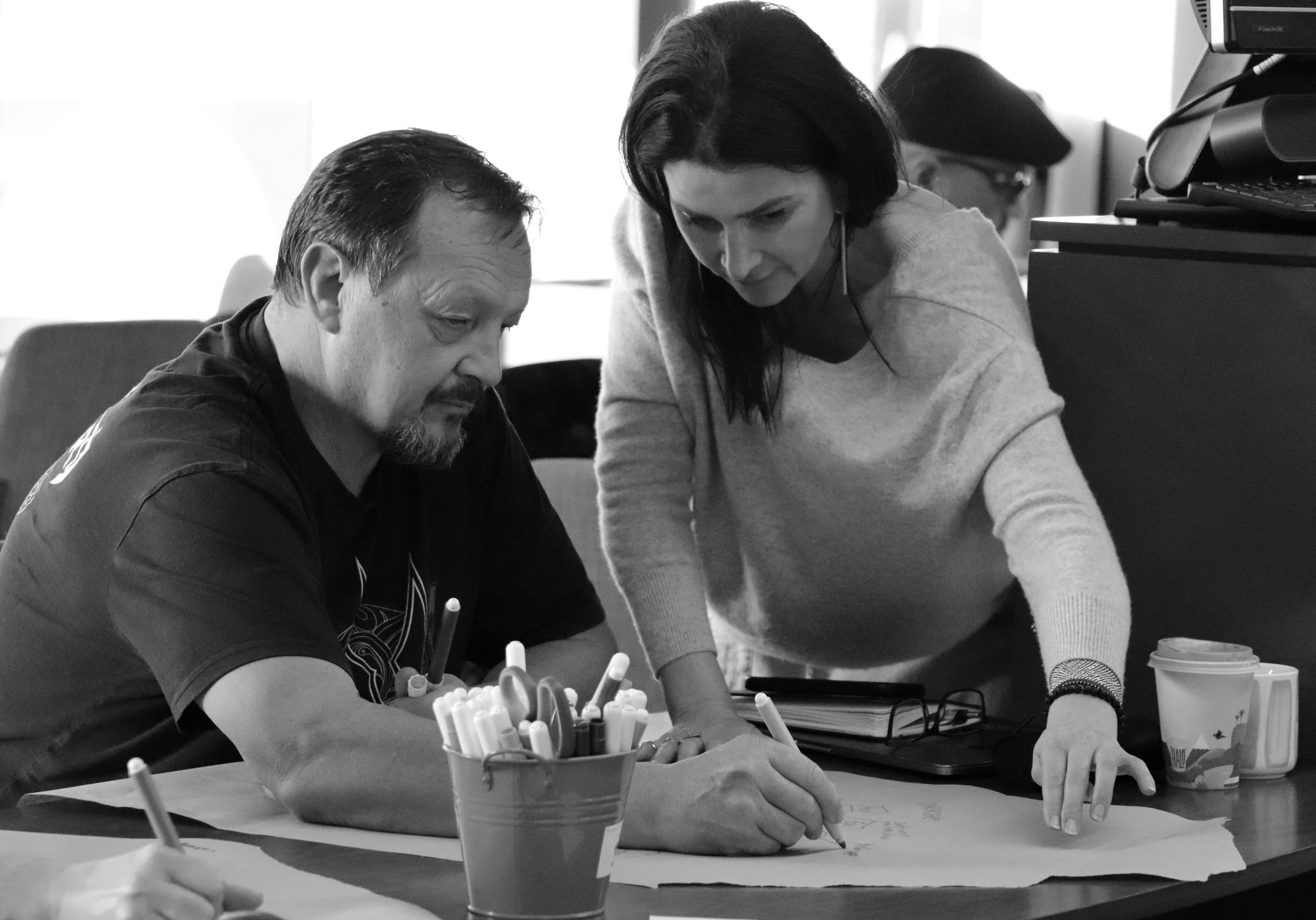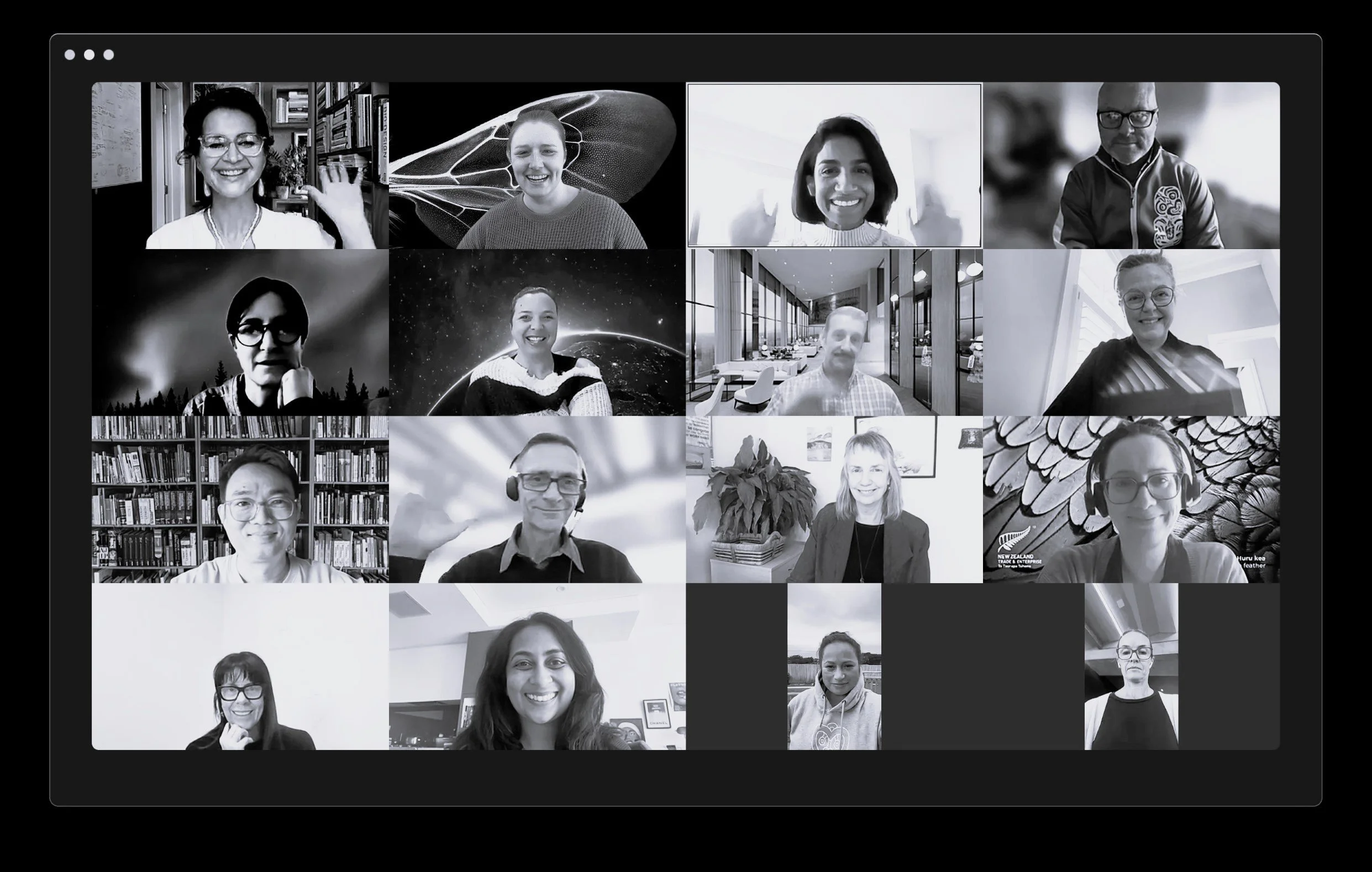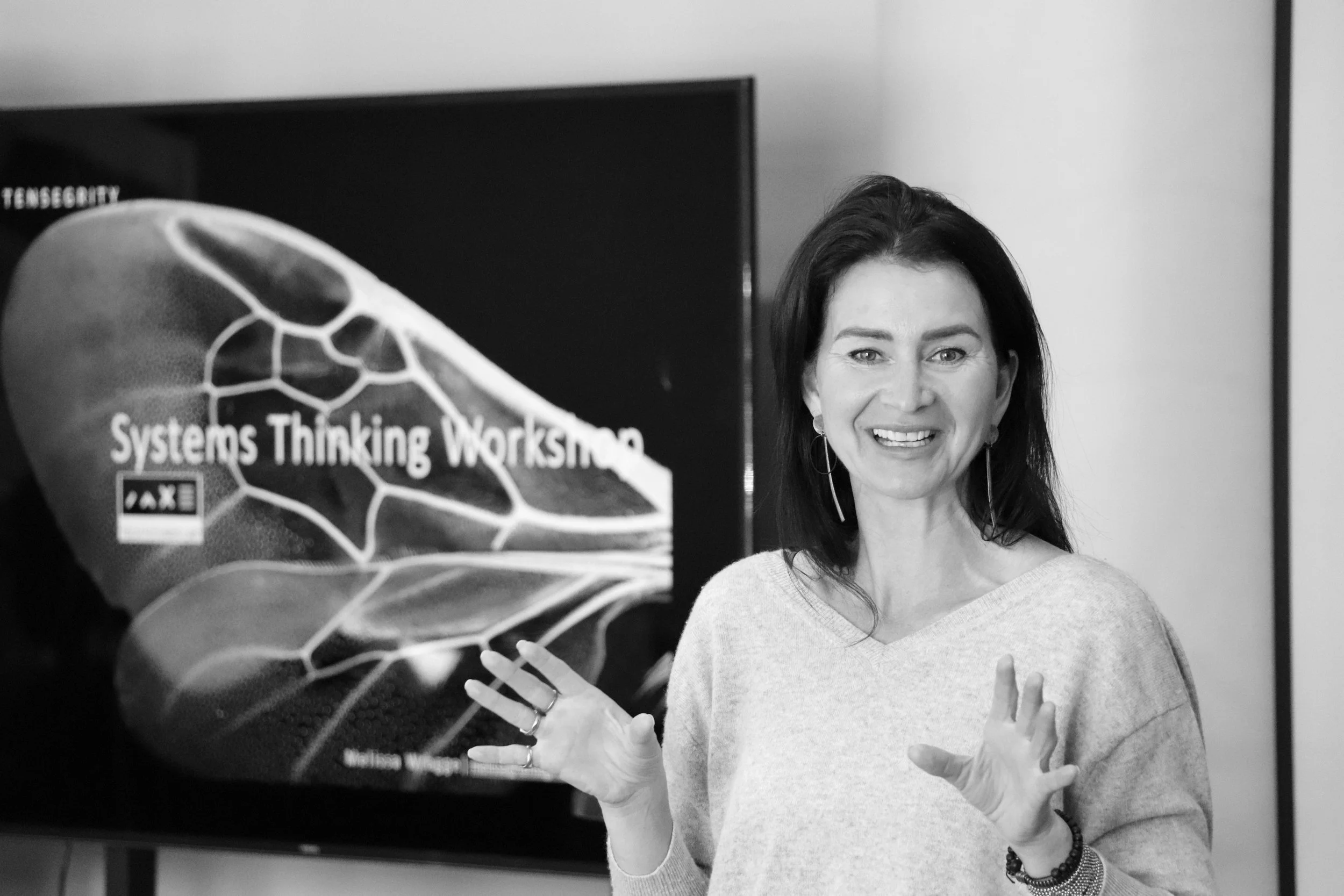
bio.t DISRUPT labs
want to disrupt your world? want to adapt to a disruptive biotech world?
come join Melissa live on Zoom.
Not just Nature positive. But Nature played.
DISRUPTING SYSTEMS
TUES 28TH OCT 12-3PM NZT
A 3 hour live design sprint on how to disrupt your world. You learn the levers to pull, and build your adaptive strategic skills, based on living systems thinking.
This is the foundational design lab Melissa teaches within the Masters of Disruptive Tech entrepreneurs, Masters of Change and Resilience programs at Academy EX, and guest lectures within University of Auckland MBA program. It is the first step in Melissa’s bio.t METHOD which she is now taking public.
for BUSINESS STRATEGY
-
Living systems thinking is the same as conventional systems in that we still use a systems lens, we still use systems mapping techniques, we still look for connections, causal relationships, feedback loops and leverage points.
What’s different is that we focus on the critical system components that Nature has used over evolution. Why? Because Nature’s systems function to not only work optimally, but to regenerative and self-renew after disruption.
Which means we can more clearly see the leverage points that are being used in current dysfunctional human systems. And we can more clearly see the leverage points required to disrupt this dysfunction and regain functionality. This means we’re better placed to use stronger leverage points that can disrupt our market, industry or even our organization, regeneratively.
Since I have integrated living systems thinking into my systems practice, I have found it gives way better contextual clarity on where to play strategically. And it also works incredibly well as a diagnostic tool for assessing disruptive risk and potential.
THE BENEFITS: As I have taken execs and entrepreneurs through the discovery process using living systems thinking over the last few years, I’ve found that there is less complexity overwhelm, that the discovery process is fast tracked, and that designs have greater structural integrity. Nicey nice.
It does change the lens a bit, in how we look at a market or social ecosystem. In practice, we look underneath patterns of change, to how the current patterns have been created and locked in place. But this means we’re better attuned to the transformational leverage points that can transform linear systems (that trap value), to circular systems that keep not just materials, but nutrients, energy, information and power in flow.
Which means we get to play a bigger strategically disruptive game. Life in rich.
BIOMIMICRY DISRUPTION
WED 29TH OCT 12-3PM NZT
A 3 hour live master class in biomimicry tech disruptions. You learn the core principles of Nature’s design thinking playbook as we work through cutting-edge global case studies.
This is based on Melissa’s deep research into Nature’s living systems, and her MSc in Biomimicry. These principles apply to all aspects of business innovation - products, services, platforms, systems - for higher performance, efficiency, and scalability - and are woven into Melissa’s new bio.t METHOD.
for BUSINESS INNOVATION
-
to life centered design.
Nature’s design thinking is different than HCD thinking. Nature has evolved to adapt and regenerate in disruptive conditions over the last 3.8B years, using deep design principles that play at the highest order of performance, efficiency, scalability and growth potential.
There is a global surge of bio-based tech innovations happening right now that are emulating Nature’s living intelligence - from biomaterials, bioprocessing, biorefining, biomimetics and bio-inspiration to biomimicry.
You don’t have to be in biotech, or be a scientist to learn how to apply the principles to your innovations. In fact they work across any facet of your business.
WHO FOR
Regenerative disruptors.
Innovators. Strategists. Transformation change-agents. Agitators. Futurists. Systems architects. Design thinkers. Entrepreneurs. Educators.
-
The two key foundational pillars that set you up to best disrupt your market, your industry and your world, using the latest cutting-edge principles of Nature's design thinking.
DELIVERING TO YOU
Deep principles of Nature’s design thinking playbook applied directly to business disruption
Cutting-edge biotech and biomimicry global case studies, across sectors
Template models and thinking frameworks for mapping your system, and identifying disruptive leverage points
ENABLING YOU TO
o Better identify you / your industry’s bio-disruptive potential
o Better review your innovation pipeline and risk register with a disruptive bio-lens
o Ask better strategic questions. Make better innovation decisions
-
NO Tired 20th century thinking. NO tired technocrat “best practice” examples from lazy talking heads. NO pale-male-stale consultancy speak. NO death-by-power point. NO long docs to read. NO ad-man soundbites and big stats in size 70 font with nature stock images. NO fluff. NO waffle. NO BS.
(you're welcome).
“While AI dominates headlines, biology is converging with exponential technologies to unlock unprecedented value. It will revolutionize every market in the next 5-10 years” - Singularity University 2025
MORE DETAILS
-
We map your market ecosystem, exploring patterns, and unpacking how the current system has been patterned in (and who the pattern makers are).
We assess for tension - ethical and environmental in-equitabilities, across time and place
We vector the interconnections and identify disruptive regenerative growth potential.
THE BENEFITS:
It reveals un-met market needs and untapped value potential.
It reveals levers of system disruption (market and/or industry).
It helps you make better strategic decisions on where to play.
It helps you build stronger sense-making abilities
THE SYNTHESIZED THINKING SKILLS:
Systems thinking, systems mapping and levers of systems disruption.
Living ecological systems thinking and disruptive adaptive cycles.
Futures thinking with causal layered analysis.
-
We go through the key adaptive, disruptive design thinking principles of Nature that relate to business strategy and innovation.
We bring this to life with a series of cross-sector bio-based, biotech case studies - biomimicry, bio-processing, biomaterials - for greater performance, efficiency, and scalability.
We design sprint the implications for your own business, exploring for disruptive innovation potential.
THE BENEFITS:
You upskill in the design-thinking principles that hold the biggest disruptive leverage - that you can apply to your business
You upskill in the latest design thinking and innovation trends
THE SYNTHESIZED THINKING SKILLS:
Biomimicry design thinking
Living systems design thinking
BOOK NOW
“Living intelligence will drive an exponential cycle of innovation; an accelerant for technologies. For some, this will unlock unprecedented opportunities. For others, it will trigger overwhelming disorientation. The gap between leaders and laggards will widen dramatically, not over decades, but months.” - Future Today Strategy Group 2025
-
WHERE
Live over Zoom
WHEN
bio.t Lab #1 | DISRUPTING SYSTEMS | Tue 28th Oct 2025 | 12-3pm NZSTbio.t Lab #2 | BIOMIMICRY DISRUPTIONS | Wed 29th Oct 2025 | 12-3pm NZST
INVESTMENT (NZD)
$450 general | $250 regenerative impact not-for-profits | $150 pre-revenue startups, students, or are in between jobs.20% discount if you book both labs
She is also offering two scholarships for each bio.t Lab, covering 50% of the price, to support specifically Māori, Pacific peoples, those who identify as indigenous First Nation peoples, refugees, and recent immigrants.
10% of your purchase price will go towards Tū Mai Taonga, a Ngāti Rehua Ngātiwai ki Aotea led regeneration project, in Aotea, Aotearoa, New Zealand, to protect and restore native species and ecosystems.
BOOK NOW
data is the new oil. bio is the new data.






